
To answer the philosophical riddle of whether people have free will, we first need to understand what free will is, or at least, what it would be. My goal here is to work out what free will must be if it does exist, and along the way, try to demonstrate that it must exist.
Some Choice Jargon
An attempt to define ‘free will’ might reasonably start by defining ‘freedom’. I will use the definition that freedom is the capacity to explore possibilities. This isn’t the only good definition of freedom, but it works well with the rest of what I’m going to say. By this definition, someone is free to the extent that they can explore possibilities or options, and even a simple animal, or even a bacterium, is free insofar as it can explore the possibilities presented by its environment.
But the freedom of bacteria is relatively limited. Creatures capable of thought can explore not only their immediate physical surroundings but also the world of ideas. This freedom to explore ideas is also not unlimited: the outer borders of that freedom are the limits of our imaginations.
The power of the will in the term ‘free will’ might be reasonably defined as the power of enacting choices or decisions made by a mind. We could say, wills make choices, so free wills make free choices. So, just by these definitions, free will is choice enacted by a mind from possibilities. Free will means a mind causing a state of being from options. So even just by defining the words, we understand that free will is conscious causation. The trick is to understand what this means. What is supposedly being caused by consciousness, from what options, for instance?
هذه القصة مأخوذة من طبعة December 2023 / January 2024 من Philosophy Now.
ابدأ النسخة التجريبية المجانية من Magzter GOLD لمدة 7 أيام للوصول إلى آلاف القصص المتميزة المنسقة وأكثر من 9,000 مجلة وصحيفة.
بالفعل مشترك ? تسجيل الدخول
هذه القصة مأخوذة من طبعة December 2023 / January 2024 من Philosophy Now.
ابدأ النسخة التجريبية المجانية من Magzter GOLD لمدة 7 أيام للوصول إلى آلاف القصص المتميزة المنسقة وأكثر من 9,000 مجلة وصحيفة.
بالفعل مشترك? تسجيل الدخول
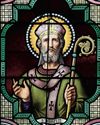
Anselm (1033-1109)
Martin Jenkins recalls the being of the creator of the ontological argument.

Is Brillo Box an Illustration?
Thomas E. Wartenberg uses Warhol's work to illustrate his theory of illustration.
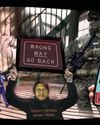
Why is Freedom So Important To Us?
John Shand explains why free will is basic to humanity.
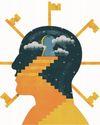
The Funnel of Righteousness
Peter Worley tells us how to be right, righter, rightest.
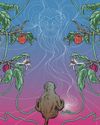
We're as Smart as the Universe Gets
James Miles argues, among other things, that E.T. will be like Kim Kardashian, and that the real threat of advanced AI has been misunderstood.
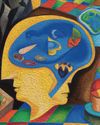
Managing the Mind
Roger Haines contemplates how we consciously manage our minds.
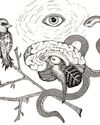
lain McGilchrist's Naturalized Metaphysics
Rogério Severo looks at the brain to see the world anew.

Love & Metaphysics
Peter Graarup Westergaard explains why love is never just physical, with the aid of Donald Davidson's anomalous monism.

Mary Leaves Her Room
Nigel Hems asks, does Mary see colours differently outside her room?

From Birds To Brains
Jonathan Moens considers whether emergence can explain minds from brains.